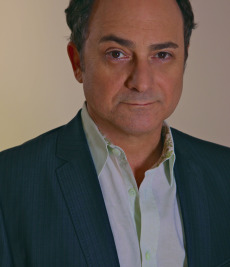
Probing the Darker Side of Comedy with a Little Help from His Friends and Adobe Premiere Pro CC
Actor, director and writer Kevin Pollak has appeared in 74 films but is well-known to many on the web as the creator and host of the weekly streaming series Kevin Pollak's Chat Show. Each episode of the six-year-old talk show features a nearly two-hour, deep-dive conversation with a different celebrity, many of whom began and developed their careers as comic actors and creatives. Pollak's first feature-length documentary, Misery Loves Comedy, takes that concept one step further, connecting some of the funniest names in show business with a compelling throughline: do you have to be miserable—as a staggering amount of comedians are—to be truly funny?
The film, directed by Pollak and co-edited with Oscar-winning VFX supervisor Rob Legato and Dylan King, probes the psyches and raw comic nerves of more than 60 comic talents, including Tom Hanks, Judd Apatow, Jim Gaffigan, Christopher Guest, Lisa Kudrow, Amy Schumer, Matthew Perry, Jimmy Fallon and Martin Short. It premieres at the Egyptian Theater at Sundance Film Festival on Friday, January 23 (Lisa Kudrow and Penn Jillette will join Pollak for a Q+ A after the screening). Before Pollak headed out to Park City, we asked him about the project's early beginnings, how his own comedic training influenced the structure and pacing, and what he learned as a first-time film editor and first-time Adobe Premiere CC user during the first cut.
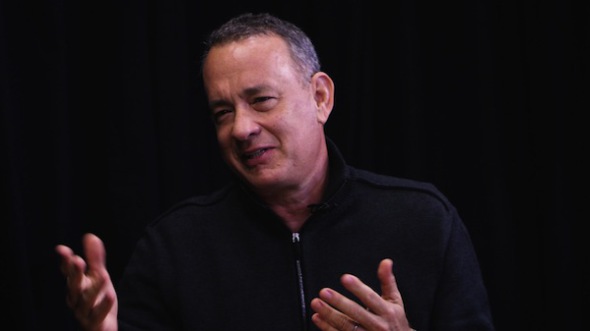
Tom Hanks
StudioDaily: How did the project come about? I'm guessing it had something to do with your own past as a stand-up comedian but also your web series, since you've interviewed so many prominent comics over the years.
Kevin Pollack: It was actually brought to me by others, who, like yourself, knew that I had not only spent my life in stand-up comedy but also had honed my interview skills with the series. The concept for the documentary came from producer Becky Newhall, of Newaley Pictures who'd been developing a film about comedians who suffer from depression. Becky, who also came up with the very apt name of the film, connected with Burton Ritchie, a producer that I've been working with at Heretic Films which he founded. Burton and I were developing a script of mine for me to direct. He thought of me for this because of the Chat Show but also because of my interest in directing. The other big reason is access. Out of 225 guests we've had in the last almost six years of the Chat Show, I've booked about 220. I've got a lot of access to the on-camera talent, and that's often the hardest part of putting together a picture of any kind.
Access is one thing but scheduling conflicts are another…
It was only because it was a documentary and I didn't pay any of them to appear that I was able to coordinate an extremely tight four-week shoot and amass that collective talent. So yes, schedule-wise, that was probably the hardest part.
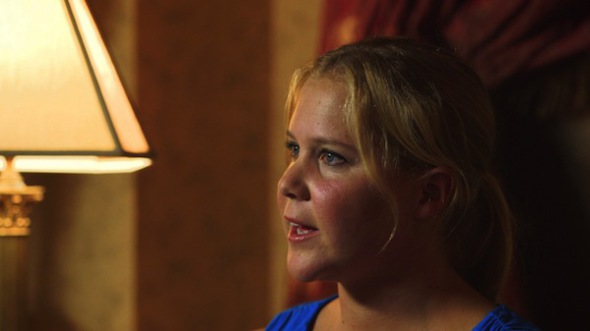
Amy Schumer
What was the idea behind your Kickstarter campaign for Misery Loves Comedy?
It was really about involving the Internet community — or, more specifically, a community through the Internet. I jumped into the web series space about six years ago, and I've definitely found it to be an extraordinary if-you-build-it-they-will-come environment. You find out pretty quickly if what you're doing is interesting. I find Kickstarter to be one of the better ways to find out, based on the premise of your project, if there are like-minded people out there. That was the most important thing about it for me: to create a groundswell. I only let people know about the campaign through Twitter and the Chat Show. We reached our goal with plenty of time to spare. We didn't need to fund the whole film. It was really about completion funds; we had probably 80% of our budget. The entire movement was done online, and there are a lot of thank-yous in the end credits because of it.
Do you rely primarily on one-on-one interviews or do you use archival footage or clips from stand-up routines?
It's mostly interviews but I drop in some still photographs. For me, the structure came out of the fact that I wanted the film to be a process of discovery about exactly the kind of person who choices a life of comedy, a life of, "Hey, look at me!" Children suffer from "Hey, look at me!" Facebook is a multibillion dollar business because everyone suffers from "Hey, look at me!" The stand-up comedian and comic sketch actors have chosen and devoted their lives to standing in front of strangers and basically begging them for laughter—and love. The idea of showing stand-up acts or comedy sketches in clips was something that I removed from the elements very early on. We've all seen that, quite frankly, to death. This really is more about a journey. I also had a great cinematographer (Adam McDaid) and many great locations, so it has an interesting and varied visual look.
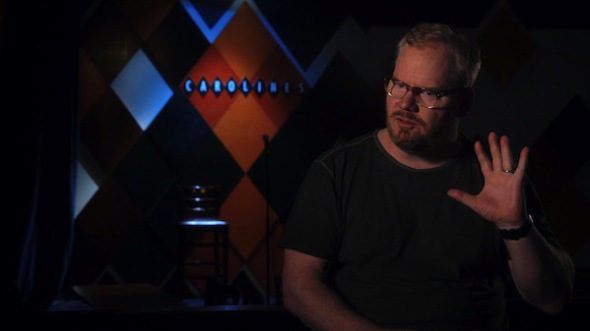
Jim Gaffigan
How did Rob Legato, known for his award-winning visual effects work on Hugo, come to edit the film with you?
I first met Rob on a project of his and then we worked together on a project of mine, so when I mentioned that I was doing this documentary, he offered to be the editor. He was finishing The Wolf of Wall Street—he's been doing all the second-unit and visual-effects supervision for Martin Scorsese since The Aviator—and he's also the only individual I know with two Oscars. That's really why I sought him out. Seriously, he was incredibly generous with his time but it quickly became clear to both of us that he only had so much of it to give. Last year before Sundance, we were asked to cut a 10-minute trailer of Misery Loves Comedy to show at the festival to potential investors. It forced us to carve out a 10-minute version of what the hell this thing is. We were working with 70 hours of interviews. Rob really was the genius who formed that first teaser. But he's a busy man and shortly after Sundance it became clear that I wasn't going to get as much of Rob's time as I needed, so he offered to show me some very basic steps of using Adobe Premiere CC.
This was your very first time using the software?
I had sat in on editing for various television and film projects I had either written or produced, especially my stand-up specials (Stop with the Kicking and The Littlest Suspect), but had never been at the helm. Rob showed me a half-dozen important moves and another half-dozen helpful shortcuts and sent me off on my own. That 10-minute version in my hands then became the first cut of the film, which came in at about an hour and 44 minutes. The final is an hour and 34 minutes. So I cut the film, really, by myself, and what an extraordinary experience that was.
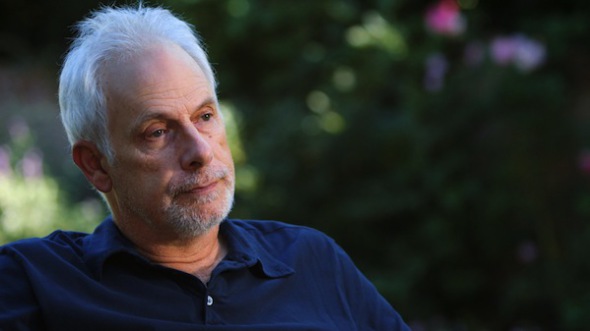
Christopher Guest
Where did you start?
First, I just decided to open up the 10-minute version and add to it, but I soon realized a real narrative had to be created and told. That became the puzzle. I cut the whole film on my Mac Pro, with the obvious hardware support. Because it was my first time with Premiere, I wasn't really exploring it very deeply in terms of all that I could do with the program. It was really about using pretty basic yet powerful tools, and I can't pretend that I became an expert right out of the gate. But to me, it was an absolute joy to discover those fundamental tools and learn to use them. It was like discovering the first diamond. Just to be able to finish the previous cut and start the visual from the previous cut and have the audio from the previous cut bleed over—implementing something as utterly basic as that and eventually getting trickier with it as I went along was like being a child with its first toy. I can't speak to the brilliance of the program as much as I can to how easy and joyful it was as a first-timer on a big project.
Did you hit any unexpected roadblocks along the way?
I never felt confounded by the software, and I'm easily confounded by every other computer program I've had to deal with. The ease and comfort and sheer joy I experienced, knowing I could just be creative and didn't have to spend unnecessary time learning and relearning how the program worked, was liberating. The fact that I could use basic tools to tell the story I wanted to tell, both visually and creatively, when having never used those tools before, was amazing to me. I got into a groove very, very quickly.
It doesn't seem like you had a big budget for sound design. Did you call in any favors there?
The great Ben Folds gave me some music to use as transitional buffers between chapters. We got lucky there. We didn't have the time, money or resources for much else. Eventually we dropped in stills of everyone, so I used some tools to animate those. But I'll tell you, there is a very powerful story to be told here by incredibly talented and funny people, and I just wanted them, and not the trickery of the filmmakers, telling that story. I'm sort of glad, quite frankly, that we had to work primarily with the interviews.
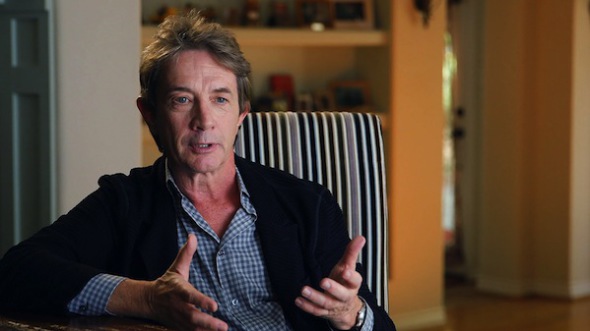
Martin Short
How dark does it get for some of those you interviewed?
Maria Bamford did eventually share her experiences of being in a psych ward and Jim Jeffries talks about being clinically depressed and on and off meds and feeling suicidal. Then you've got Marc Maron, who, with one of the largest platforms on the Internet, has become the voice of a new generation of angst and depression. But there is also Freddie Prinze Jr. talking about his dad for the very first time on camera. What also was interesting to me and what came out during the interviews is, where did these people come from? I was really doing the work of a psychiatrist and going back to try to find the moment where a: you chose this life, and b: what you brought into it because of how you were raised. One of the chapters is "Who's Your Daddy and/or Mommy." I wanted to know, did you have support as a child or did you not, and what did that mean for your comedy? We get the full range, from positive to negative.
Being alone on stage in front of the microphone is its own kind of perpetual horror show.
Absolutely. Dana Gould had a great moment where he talked about the nakedness of doing a bit during stand-up and things not going well. Stand-up comedy is not for the faint of heart but it's also just not normal! Dana articulated it best when he said just the whole thought of standing on a stage in the spotlight, holding a stick that makes your voice louder and demanding attention and then not paying it off, that's a creepy, vulnerable situation to put yourself in. Who would do that? Everyone just wants attention but we mostly want it from specific people close to us. The difference with the comedian is, and I joke about this in my act, we don't care what our friends think. I'm not on Facebook because I don't care what my friends think. I'm on Twitter because I'm a true narcissist and I need love from total strangers.
You started stand-up when you were ten. What were your jokes like back then?
It's been a wonderful memory and for 47 years it has been the greatest story ever to tell. Only now, in the last six months, has it become incredibly awkward: When I was 10, my mother brought home Bill Cosby's first album and put it on the stereo hi-fi. I watched my parents laugh uncontrollably at this storyteller coming from this six-foot-wide piece of furniture. It was as unnerving as watching them openly sob; it was just weird to me. So when no one was around I wanted to be that guy. I played the record over and over again, and eventually I just stood up in front of the stereo and started lip-syncing. Nobody had ever explained to me what lip-syncing was—I was just playing and interacting. Then my mom caught me and said, "You're doing that at Passover for the family." I didn't jump for joy or tell her no. I just thought, "OK then. Right. That's what I'll do." It was an instant hit, and I did it all through junior high at every function at school, no matter what it was. There's Kevin and his album. I never spoke out loud for the first six years of my act. At 17, I started doing impersonations and at 18, I had my first nightclub gig. The great thing about all that early silent work was I was learning timing from a Jedi master without even realizing it. I haven't really thought about it before this conversation but, holy cow, was that instrumental.
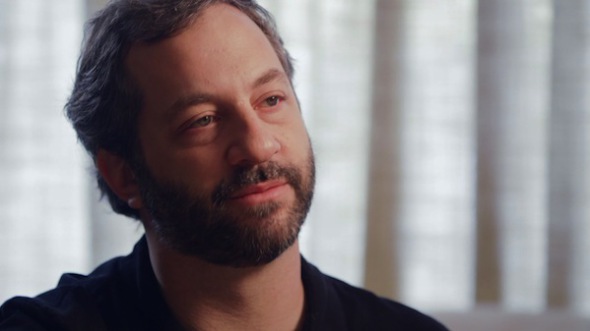
Judd Apatow
How did your own inner comic timing inform your edit of this film?
In every way. All of those early experiences learning about timing is what fueled me not only as a performer over the years but also as a first-time editor. There's no question. In addition to my acting work, I've been a member of the WGA since 1987. I understand pace but I didn't have a clue what editing pace meant until I sat in front of the monitors for eight to 10 months and put that puzzle together and took it apart and put it together and took it apart and so on. Editing this film, without a script to follow, really was the greatest lesson I've ever learned. I also want to give credit to Dylan King, our third editor, who is a friend and who has been editing television for 20 years. He came on board after my original hour and 44 ballooned up to two hours. As I was bringing it back down, he became the main editor, also in Adobe Premiere, in the last couple of months of post to do the wonderful finesse work in the transitions and build-ups that appear in the final film. I had the Rolodex, I had the interviewing skills, I spent 40 years in the stand-up comedy trenches, I had directed before. But I had not edited, and thanks to this experience with Premiere, man am I hooked. I can't wait to do it again.
What are the initial distribution plans?
UTA, the talent agency, came on board a few months ago to rep the film. There's only one reason a company like that will rep a documentary: they smell money. Getting into Sundance was a giant victory. Because I have 70 hours of interviews with insanely funny people talking about very difficult subjects and still being very funny while doing so, because they can't help it, there is also a series to be had here. There is interest from HBO, but there are also a lot of platforms online where this could live in series form, be they three-minute pieces or 12-minute pieces or half-hour pieces. We haven't decided yet and won't decide until we have the right distribution company in place.
Had you already finished shooting when Robin Williams committed suicide?
Sadly, we were done when the news came. I only had one week to shoot in New York and three weeks to shoot in L.A. and whoever fit into that schedule with their own lives and work is who we got. We started with 25 on the schedule, but as people kept saying yes, we ended up with 63 by the time we wrapped. It grew exponentially while we were shooting. I was on the phone three times with Robin while we were shooting, trying to figure out a time. He was working on a television show in L.A. and we didn't shoot on weekends. We've known each other since I first started as a young 20-year-old in San Francisco; he'd been a real mentor and great friend and appeared in one of my HBO specials. I had to dedicate the film to him in the end credits.
Crafts: Editing
Sections: Creativity
Topics: Project/Case study Q&A documentary kevin pollak sundance 2015
Did you enjoy this article? Sign up to receive the StudioDaily Fix eletter containing the latest stories, including news, videos, interviews, reviews and more.
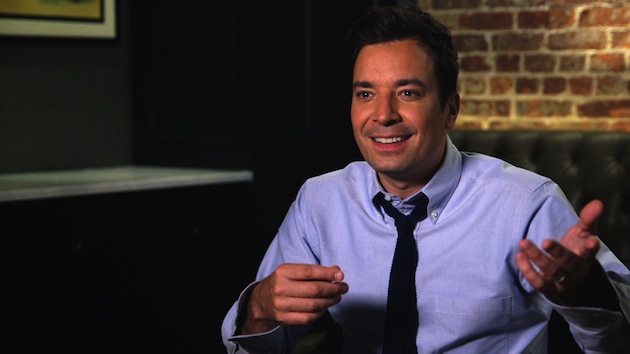

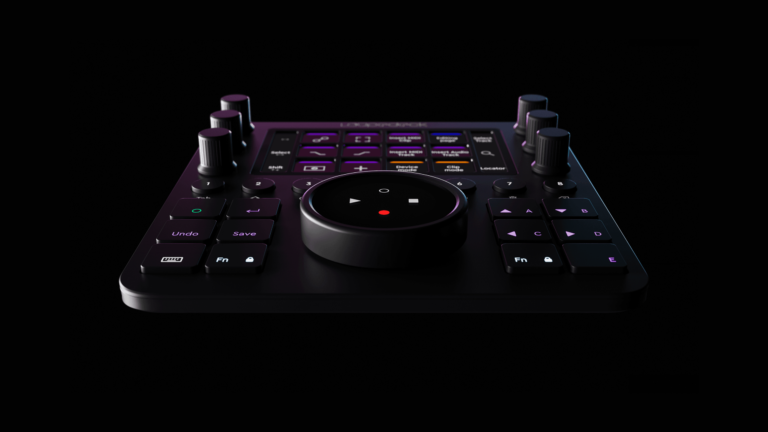

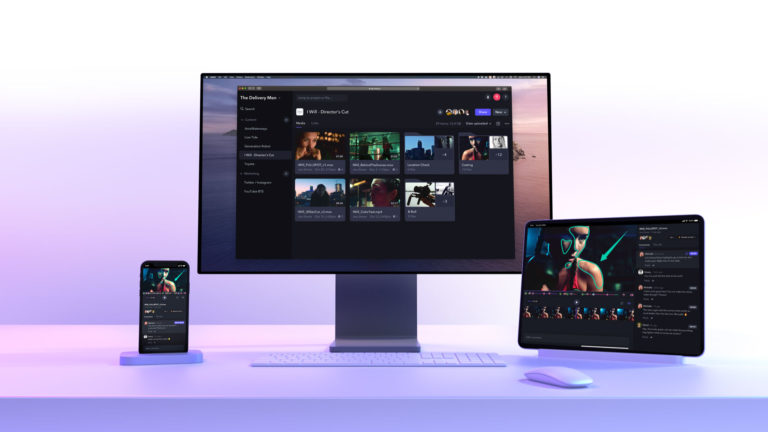






Leave a Reply